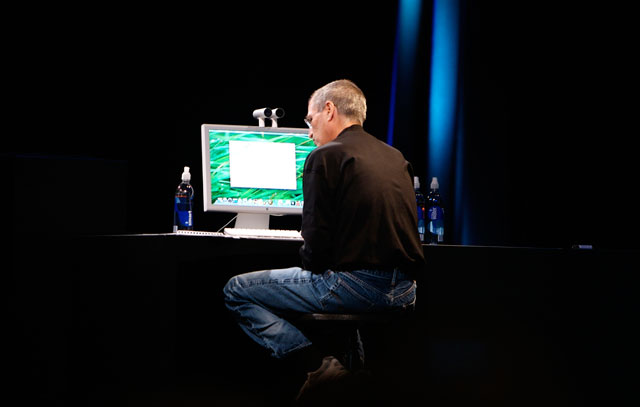
Cabling the world to spread Internet access is an expensive and time-consuming process, especially when taking to the skies for wireless coverage is far easier. That’s why Google, Facebook and now Elon Musk’s SpaceX are all heading towards the stars to set up systems that should cover the globe in Internet connectivity. Until recently it’s been Facebook and Google taking all the headlines for pioneering bringing internet coverage to all areas of the globe. Now Elon Musk has confirmed that his SpaceX company will sending be satellites into space to create an internet offering of its own. So, in this modern space race, who’s doing what and how will it affect us down here on the surface? Read more…
PS4 vs Xbox One: the forces shaping the console war
As of this weekend, Sony’s PlayStation 4 will have been on the market for a year. Microsoft’s Xbox One marks its anniversary one week later. Despite widespread concern about the coming demise of the videogame console, the pixellated sky hasn’t fallen: combined, the two rivals have sold almost 24m consoles in the first year — about 70% more than first-year sales for the PS3 and Xbox 360. Read more…
When a photographer secretly takes over a town’s surveillance camera
Six years ago, photographer Andrew Hammerand was clicking around online when he discovered a discussion on networked devices — pieces of technology connected to the Internet that, without password protections, anyone could access. He started Googling certain URLs and found a host of security footage of places like parking lots and malls. And then he discovered something very rare: a video camera attached to a cellphone tower on top of a church that surveilled an entire US Midwestern community. He began zooming in for a closer look at the town’s residents. Read more…
Peeping into 73 000 unsecured security cameras
A site linked to 73 011 unsecured security camera locations in 256 countries to illustrate the dangers of using default passwords. The site indexes locations with unsecured security cameras in 256 countries … unsecured as in “secured” with default usernames and passwords. Read more…
The secret apps that only Apple employees get to use
Apple is a company known for its secrecy. New products are developed in design head Jony Ive’s top-secret lab facility, which only a handful of Apple employees are able to gain entry to. When a prototype iPhone 4 was carelessly left in a bar by an Apple employee, the company quickly scrambled to retrieve it, fearful that journalists and competitors could use it to find out what goes on during the making of a new product. New Apple employees are given access to a suite of apps to help them communicate with one another, test devices and deal with customers. Read more…
Lytro looks at a future beyond photography
Lytro, the pioneer which introduced the world to light-field photography, wants to show it’s not a one-trick pony. The company dazzled consumers in 2011 by demonstrating how it was possible to shoot now and focus later. Yet no matter how excited people were about capturing more light and data in their images, adoption was limited. Serious photographers weren’t clamouring for the new-age camera, which faced shortcomings with software compatibility and image quality — the latter problem Lytro aimed to solve with Illum, a US$1 599 high-end camera introduced in April capable of shooting 40-megaray resolution images. (Lytro uses the term megaray to quantify light-field data; by contrast, its first-generation camera had an 11-megaray sensor.) Read more…
Samsung reveals master plan to connect your life
Samsung may be known for wacky gimmicks, pocket-busting smartphones and bizarre press conferences. But it’s incredibly serious when it comes to its future. At the Samsung Developer Conference in San Francisco this week, the Android maker and Tizen evangelist is laying out its path forward, and it has less to do with phones than pushing other emerging areas. Read more…

Why Steve Jobs obsessed about office design
Creativity is a collaborative process. As brilliant as the many inventors of the Internet and computer were, they achieved most of their advances through teamwork. Like Robert Noyce, the founder of Intel, some of the best tended to resemble Congregational ministers rather than lonely prophets, madrigal singers rather than soloists. Read more…
A new king of the Dark Net emerges after Silk Road 2.0 falls
The Federal Bureau of Investigation’s takedown last week of Silk Road 2.0 and two dozen other illicit markets has paved the way for enterprising kingpins to rush into the void and give the market what it wants — that’s just how it always works. What is extraordinary about this new vacuum, however, is the size and speed of the rush. Read more…
Why scientists think unclassifiable and undiscovered life forms exist
In high school biology, we are taught that there are three types of life: eukaryotes (that’s us, and most everything else we often think of as life), bacteria, and archaea (extremophiles and other very primitive life forms). But some scientists are pretty sure that there are entirely different, undiscovered life forms that could be prevalent on Earth, and they remain undescribed because we’re not good at looking for them. Read more…




